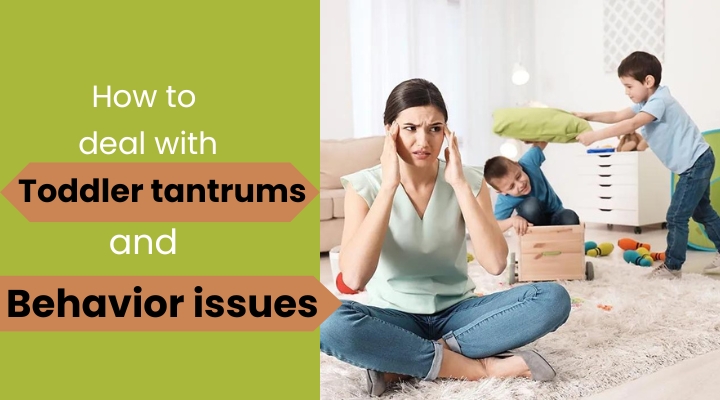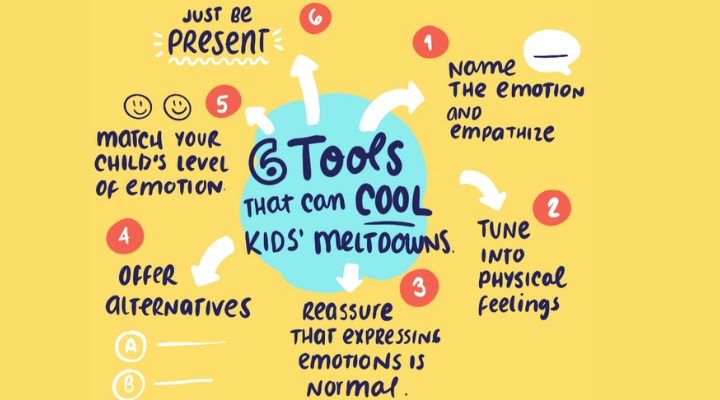How to deal with Toddler tantrums and Behavior issues
Parenting can be a rewarding journey, but it also comes with its fair share of challenges. In this article, we’ll explore How to deal with Toddler tantrums and Behavior issues. One of the most trying aspects of raising a toddler is dealing with their tantrums and behavior issues. Toddlerhood is a crucial stage of development where children begin to assert their independence, test boundaries, and explore the world around them. This can often lead to meltdowns and challenging behaviors. However, with the right strategies and understanding, parents can navigate these tumultuous waters and help their toddlers develop the skills they need to manage their emotions and behaviors.
How to deal with Toddler tantrums and Behavior issues
Understanding Toddler Tantrums and Behavior Issues
Before diving into strategies, it’s important to understand why toddlers exhibit tantrums and behavior issues. Toddlers are undergoing significant cognitive, emotional, and social development, which can result in a range of emotions and behaviors. They are learning to communicate, express themselves, and deal with newfound emotions like frustration, anger, and disappointment. However, their language skills are still developing, and they may struggle to convey their needs and feelings effectively, leading to frustration and outbursts.
Additionally, toddlers are exploring their autonomy and independence. They’re discovering that they are separate individuals from their caregivers and are driven to assert control over their environment. While this is a crucial developmental milestone, it can also manifest as defiance, resistance, and tantrums when their desires are not met.
Effective Strategies for Dealing with Toddler Tantrums and Behavior Issues
1. Stay Calm-
When a toddler is in the midst of a tantrum, the caregiver must remain calm. Your emotional state can influence the child’s response. If you stay composed, you model emotional regulation for them.
Related- How To Build A Strong Parent-Child Bond
2. Validate Emotions-
Even if you can’t always understand the exact reason for your toddler’s upset, validate their feelings. Acknowledge their emotions with statements like, “I see you’re upset” or “I understand you’re frustrated.” This can help them feel heard and understood, reducing the intensity of the tantrum.
3. Provide Clear Communication-
Since toddlers are still developing language skills, they might struggle to express themselves. Use simple, clear language to communicate with them. Offer choices whenever possible to give them a sense of control, but ensure the choices are acceptable to you as well.
4. Maintain Routine-
Toddlers thrive on routine. Predictable schedules can help reduce anxiety and frustration, as they know what to expect next. Sudden changes can trigger tantrums, so try to give advance notice of any alterations in your routine.
5. Distraction and Diversion-
Sometimes, a well-timed distraction can defuse a brewing tantrum. Redirect their attention to a different activity or toy to shift their focus away from the source of frustration.
6. Offer Independence-
As toddlers strive for independence, allow them opportunities to make simple decisions. This could be choosing their outfit, picking a snack, or deciding which book to read. These small choices empower them and reduce the need for power struggles.
You can also go for – 9 Tips To Balance Your Work And Family Life- As A Parent
7. Use Time-Ins-
Rather than isolating a tantruming toddler, consider using a “time-in.” This involves staying with your child during their tantrum, offering comfort without giving in to their demands. This approach shows them that you’re there for them even when they’re upset.
8. Teach Emotion Regulation-
Help your toddler learn to manage their emotions by labeling feelings. Use picture books or drawings to illustrate various emotions and discuss when they might feel that way. This can improve their emotional intelligence and give them tools to express themselves.
9. Set Clear Boundaries-
Establish consistent rules and limits, and communicate them. Make sure both caregivers are on the same page regarding these boundaries. Consistency provides a sense of security for toddlers.
10. Positive Reinforcement-
Reward positive behaviors with praise and attention. When your child exhibits good behavior, acknowledge and celebrate it. This reinforces their understanding of what is expected and encourages them to repeat positive actions.
11. Model Behavior-
Children learn by observing. Be a role model for the behavior you want to see. Demonstrate patience, problem-solving, and emotional regulation in your interactions with them and others.
Relatable- 7 Fun & Exciting Monsoon Activities For Kids!
12. Provide Physical Outlets-
Sometimes, toddlers need a physical outlet for their energy and emotions. Engage them in activities like dancing, jumping, or running to help them healthily release pent-up energy.
Dealing with Specific Behavior Issues
1. Hitting and Biting-
If your toddler engages in hitting or biting, calmly intervene and explain that these behaviors are not acceptable. Provide alternatives like using words to express their feelings or using a soft toy to release frustration.
2. Refusing to Eat-
Toddlers can be picky eaters. Offer a variety of healthy options and avoid pressuring them to eat. Make mealtime pleasant, and remember that eating habits can be erratic during this stage.
3. Bedtime Struggles-
Stick to a consistent bedtime routine. Offer soothing activities like reading a story or cuddling to signal that it’s time to wind down. Avoid stimulating activities close to bedtime.
4. Toilet Training Resistance-
Toilet training can be challenging. Be patient, and encourage the child’s cooperation without using force. Offer rewards for successful attempts and stay understanding during accidents.
5. Screen Time Battles-
Set clear limits on screen time. Use it as a reward for positive behavior and avoid using screens as a distraction during tantrums, as this can inadvertently reinforce the behavior.
Seeking Professional Help
In some cases, toddler behavior issues might be more complex and persistent. If tantrums and challenging behaviors are severe, interfering with daily life, or causing distress to the child or family, it’s a good idea to seek professional help. A pediatrician, child psychologist, or developmental specialist can provide valuable insights and guidance tailored to your child’s needs.
Dealing with toddler tantrums and behavior issues requires patience, empathy, and a deep understanding of child development. Remember that this phase is temporary, and your child is learning and growing with every experience. By staying calm, validating emotions, and employing effective strategies, you can help your toddler navigate this challenging phase while fostering their emotional development and self-regulation skills. Your consistent love, support, and positive guidance will set the foundation for a strong parent-child relationship and a confident, well-adjusted child.
Frequently Asked Questions-
Why do toddlers have tantrums?
Toddlers have tantrums because they are undergoing intense emotional and developmental changes. They are learning to communicate their needs and assert their independence, but their limited language skills can lead to frustration. Tantrums are often a way for them to cope with overwhelming feelings and a desire for control.
How can I prevent tantrums from happening?
While it’s impossible to prevent tantrums entirely, you can reduce their frequency. Stick to routines, offer choices within limits, ensure your child is well-rested and fed, and give them opportunities for physical activity and exploration. Anticipate triggers and intervene before frustration escalates.
What should I do during a tantrum?
During a tantrum, stay calm and provide a safe space. Use simple language to acknowledge their feelings (“I see you’re upset”). Avoid reasoning or disciplining during the tantrum as it may escalate the situation. Offer comfort and wait for the tantrum to subside before discussing the issue.
Is it okay to give in to my toddler’s demands to stop a tantrum?
While it might be tempting to give in to stop a tantrum, doing so can inadvertently reinforce the behavior. Toddlers learn that tantrums lead to getting what they want. Instead, offer comfort and explain that the behavior is not acceptable. Stick to your boundaries and provide positive reinforcement for calmer behavior.
When should I seek professional help for my toddler’s behavior issues?
If your toddler’s behavior issues are severe, persistent, or causing distress to the child or family, seeking professional help is advisable. A pediatrician, child psychologist, or developmental specialist can provide expert guidance to address underlying issues and develop effective strategies for managing behavior.










